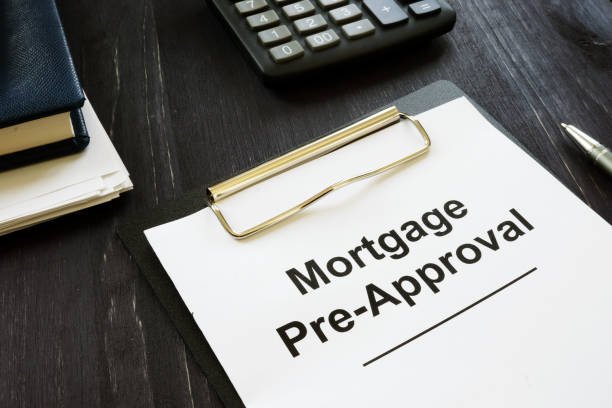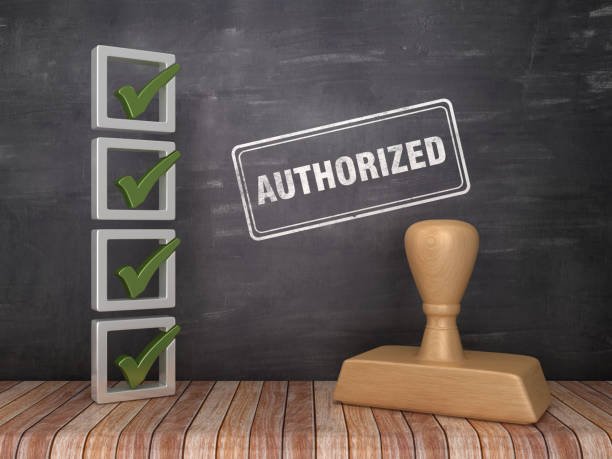Loan Pre-Approval: An Introduction
Loan pre-approval is an important step when you’re considering taking out a loan. This process tells you how much loan you can get and what role your financial situation plays in it. When you apply for pre-approval, your credit history, income, and debt levels are assessed. This process gives you an idea of whether you’re eligible for a loan or not. In this article, we will understand the pre-approval process in detail and see how essential it is for your financial planning.
Pre-Approval vs. Loan Approval: What’s the Difference?

There is a difference between pre-approval and final loan approval. Pre-approval is an initial step where your financial details are checked, while final approval happens when your complete application and supporting documents have been reviewed. Pre-approval gives you an idea of your chances of getting a loan, but for final approval, you must go through the complete documentation and verification process.
How Pre-Approval Works
In the pre-approval process, you need to provide your financial details to the lender. This includes your income, employment status, and credit score. The lender verifies the information you provide and gives an initial decision on how much loan you can get. This process usually completes in a short period, and you receive a pre-approval letter indicating the possibility of obtaining a loan.
Documents Required for Pre-Approval

Some essential documents are required for loan pre-approval that you need to provide to the lender. These include proof of income, employment verification, bank statements, and a credit report. These documents help the lender assess your financial stability and loan repayment capacity. Each lender’s requirements may vary slightly, but generally, these documents are necessary.
The Role of Credit Score in Pre-Approval Credit score plays a crucial role in the pre-approval process. Your credit score indicates your creditworthiness and makes it easier for the lender to decide whether you should get the loan or not. A good credit score can offer you higher loan amounts and better interest rates, whereas a poor credit score can reduce your chances of loan approval.
Benefits of Pre-Approval
Pre-approval offers several benefits. The first benefit is that you get a clear idea of how much loan you can take, allowing for better financial planning. The second benefit is that pre-approval gives you a stronger position when applying for a loan since you are already verified and approved. It also provides better negotiation leverage.
Validity of Pre-Approval
The validity of pre-approval is usually limited, depending on your lender and financial situation. Generally, a pre-approval letter is valid for 60-90 days. If your property search or loan process is not completed within this period, you may need to reapply for pre-approval. This validity period helps you manage the timing of the loan process and your financial stability.
Pre-Approval and Mortgage: What’s the Connection?
If you’re considering taking out a mortgage, the pre-approval process is very important for you. Mortgage pre-approval tells you a specific loan amount that you can get for purchasing a property. This process provides you with a clear budget during the property search and prepares you for loan approval. Without mortgage pre-approval, your property search and purchase process can be challenging.
Applying for Pre-Approval: The Process
Applying for pre-approval is relatively simple. You need to provide your financial details to the lender, which you can do through an online or physical application. The lender reviews your provided information and issues a pre-approval letter. This process can take a few days to a week, and you need to provide your financial documents and information in a timely manner.
Common Mistakes to Avoid During Pre-Approval
There are some common mistakes to avoid during the pre-approval process. These include providing inaccurate information, submitting incomplete documents, and ignoring your credit score. These mistakes can impact your pre-approval chances and lead to challenges in the loan process. Providing accurate and complete information and improving your credit score is essential.
Pre-Approval vs. Pre-Qualification: Differences
Pre-approval and pre-qualification are both terms used in the loan process, but they have key differences. Pre-qualification is an informal process where you provide basic financial information to the lender and get a rough estimate. Pre-approval is a more formal process where your financial details are thoroughly verified, and an official pre-approval letter is issued. Pre-approval is more reliable and enhances loan approval chances.
How Long Does the Pre-Approval Process Take?
The duration of the pre-approval process depends on the lender and the complexity of the application. Generally, this process can take a few days to a week. If your financial details are complete and accurate, the pre-approval process can be completed quickly. However, if additional documentation or verification is required, the process might take longer.
Impact of Pre-Approval on Home Buying
Pre-approval has a significant impact on the home buying process. Pre-approval provides you with a clear budget and gives you a realistic view during the property search. It puts you in a strong position with sellers and provides better leverage for negotiation. Without pre-approval, your home buying process can be more challenging and time-consuming.
Maintaining Pre-Approval Status
Maintaining pre-approval status is important, and you should follow some tips to do so. It is essential to maintain your financial stability, make timely payments, and monitor your credit score. If you make major financial changes after pre-approval, it can affect your loan approval chances. Regularly reviewing your financial situation and updating your lender is beneficial.
Conclusion: Why Pre-Approval is Essential
Loan pre-approval is a crucial step for your financial planning and the loan process. It gives you a clear idea of how much loan you can take and assesses your financial stability. With pre-approval, you get better negotiation leverage and make the home buying or property purchase process smoother and more efficient. Therefore, understanding pre-approval and fully utilizing its benefits is important.


